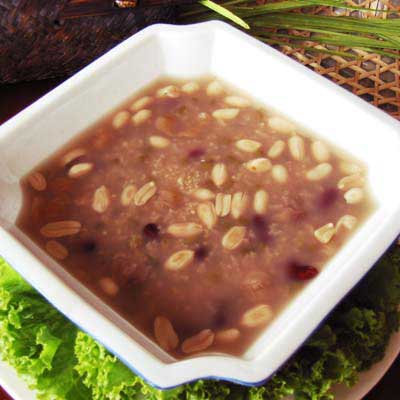Source: chinaculture.org
01-18-2008 09:21
 |
The Laba Festival falls on the eighth day of the twelfth lunar month. This holiday may be traced back to the ancient Chinese custom of sacrificing game to the ancestors during the last month of the lunar year. Following the ritual, the participants feasted together on the sacrificial meat in an early expression of the Chinese tradition of communal eating. The Laba Festival is popularly referred to as Laji Festival (End-of-Year Sacrifice Festival), another indication of its ancient origins and association with early sacrificial rituals. It is also said that Sakyamuni Buddha attained enlightenment on the eighth day of the twelfth lunar month. As a result, with the introduction of Buddhism to China, the Laba Festival also became known as the Day of Enlightenment.
Eating porridge on the Laba Festival is a very old tradition. As Buddhism became integrated into Chinese society, "Laba porridge" became known as "Buddha porridge," in commemoration of the date of Buddha's enlightenment. Legend has it that after Sakyamuni left secular life to become a monk, he meditated so deeply that he often forgot to eat. Once, when he was close to dying of starvation, he encountered a woman tending her flock. The woman saved his life by feeding him rice porridge with milk, enabling him to continue meditating and attain enlightenment on the day of Laba Festival. In order to commemorate this incident, every year at the Laba Festival Buddhists eat Laba porridge, also known as Buddha porridge. Many versions of the legends concerning the origins of Laba Festival exist in different regions of China.
The two most important traditions associated with Laba Festival are eating Laba porridge, and praying for peace and good health in the coming year.
